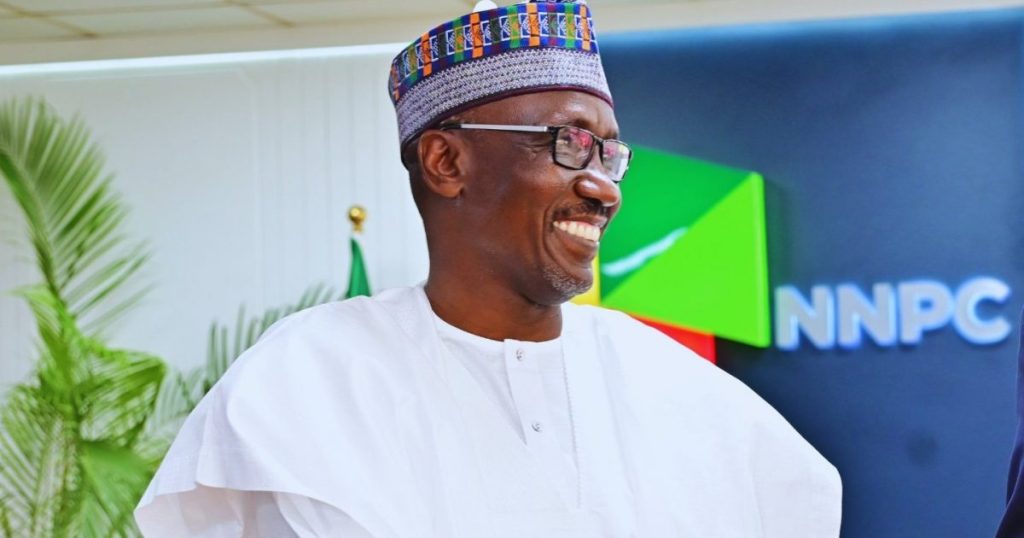The Uncertain Future of NNPC Leadership: Kyari’s Tenure and the Specter of Succession
The Nigerian National Petroleum Company Limited (NNPCL), the cornerstone of Nigeria’s oil and gas industry, finds itself at a crossroads as the tenure of its Group Chief Executive Officer (GCEO), Mele Kyari, approaches its potential end. This impending transition has ignited anxieties within the industry, sparking discussions and debates surrounding the future leadership of the oil giant. While some observers anticipate Kyari’s departure upon reaching the age of 60 in January 2025, others contend that his term extends to 2027, based on interpretations of the Petroleum Industry Act 2021 and the NNPCL’s Articles of Association. This ambiguity fuels uncertainty and raises critical questions about the selection process for the next helmsman of this pivotal national institution.
Kyari, appointed in 2019 by former President Muhammadu Buhari, has overseen the NNPCL for over five years, the longest tenure for any leader of the organization since Nigeria’s return to democracy in 1999. His leadership coincided with the NNPCL’s transformation from a public corporation to a limited liability company in 2022, a significant shift in its operational structure. As a veteran of the oil industry with over three decades of experience within the NNPC, Kyari brought a wealth of knowledge and expertise to the role. His continuation under President Bola Tinubu’s administration, alongside other key appointments, suggested a degree of stability and continuity. However, the looming question of succession persists, casting a shadow of uncertainty over the NNPCL’s future trajectory.
Adding to the complexity of the situation are allegations of ethno-political considerations influencing appointments within the NNPCL. Accusations of a "Yoruba-centric takeover" under President Tinubu have surfaced, sparking controversy and raising concerns about potential biases in the selection of Kyari’s successor. These claims, while vehemently denied by the NNPCL, have nonetheless fueled public discourse and added another layer of complexity to the already sensitive issue of leadership transition. The online exchange between a US-based Nigerian professor, Farooq Kperogi, and former Kaduna State Governor, Nasir El-Rufai, further highlighted the delicate balance between regional representation and meritocracy in national appointments, adding fuel to the debate surrounding the NNPCL’s future leadership.
The NNPCL’s response to these allegations has been swift and unequivocal. Spokesperson Femi Soneye has categorically denied any influence of ethnicity, religion, or political affiliation in the company’s hiring and promotion practices, emphasizing merit, business requirements, and expertise as the sole determinants. This assertion aims to quell concerns about potential biases and reassure stakeholders that the selection process for the next GCEO will be transparent and merit-based. Furthermore, the NNPCL has stressed President Tinubu’s non-interference in the company’s internal affairs, reinforcing the idea of an independent and professionally managed organization.
Despite these assurances, the uncertainty surrounding Kyari’s tenure and the potential succession process continues to generate speculation. While the NNPCL maintains that the GCEO’s term is secure and his performance has been exemplary, the lack of clarity regarding the exact expiration date of his tenure fuels ongoing debate. This ambiguity creates a breeding ground for rumors and speculation, potentially impacting the stability of the NNPCL and the broader oil and gas sector in Nigeria. The absence of a definitive timeline for leadership transition adds to the anxiety and underscores the need for greater transparency and communication from the NNPCL.
Navigating this complex landscape requires a delicate balance between ensuring stability and embracing change. The NNPCL must prioritize transparency and open communication to address public concerns and dispel rumors surrounding the leadership transition. A clear and well-defined succession plan, based on merit and expertise, is crucial to maintaining investor confidence and ensuring the long-term stability of the Nigerian oil and gas sector. The upcoming transition presents both a challenge and an opportunity for the NNPCL to solidify its commitment to professionalism and meritocracy, setting the stage for a new era of leadership and growth. The decisions made in the coming months will have far-reaching implications for the future of the NNPCL and the Nigerian economy as a whole.














